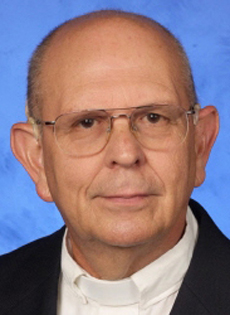
Cuban-Miami myths
Monday, August 11, 2025
*Fr. Eduardo Barrios, SJ
The unquestioned version of events is that Cubans who arrived in Miami shortly after 1959 were all educated, wealthy, religious, and in love with democracy. In reality, they were a diverse group that included barbers, mechanics, small farmers, and many more.
Cubans from different socioeconomic backgrounds went into exile early on, motivated in part by ideals; for example, some did not want their children to be educated under atheistic Marxism. Many wealthy Cubans left the island because they had lost their industries, businesses, and farms.
If the Castro regime had limited itself to expropriating only multinational companies and unused large estates, quite a few business owners and landowners would have stayed in their homeland. After all, Cuba had not had a democracy since 1952, when Fulgencio Batista carried out a coup against the constitutional president, Carlos Prío Socarrás, and many wealthy people did not care much about that. Batista respected private property.
So, by the sixth decade of the 20th century, there were already economic migrants. Professionals who lost their private practices in medicine, architecture, engineering, law, and other liberal professions emigrated as well.
The general perception is that the Cubans who left Cuba via the Mariel boatlift in 1980 were common criminals and patients from the Havana Psychiatric Hospital, also known as Mazorra. But most of those who came that way were honest and sane. Many were young enough to enroll in college and pursue a profession or technical career. There are many stories of "Marielitos", as they were called, who have achieved the American dream thanks to their hard work and determination to get ahead in the land of opportunity.
Another myth was the idea that with the triumph of the revolution, people spent their lives crying over shortages and political oppression. The truth is that human beings have psychological defense mechanisms that help them overcome difficult situations. This is why there were still parties and dances in Cuba, even though the celebrations were modest, and there was never a shortage of jokes.
Of course, dollar remittances helped their recipients improve their standard of living for several decades. These remittances began in 1994, when the Cuban government decriminalized the possession of foreign currency. Another source of relief was the authorization allowing Cubans who had emigrated to visit relatives in Cuba, which began in 1979.
Cubans who received aid from abroad helped those who did not by paying for services such as cooking, cleaning, and laundry.
Over time, more and more Cubans continued to arrive in the United States. Those who arrived in the early days despised the newcomers, considering them ill-educated and purely economic migrants without high ideals. Nothing could be further from the truth. Primary, secondary, and higher education were maintained in the former Pearl of the Antilles. Cuba had no shortage of libraries, theaters, cinemas, and youth clubs with access to intranets and internal networks. Internet connection required payment. There was classical music and ballet, as well as museums. Despite the impoverishment, there were still educated Cubans on the island. Those who are now arriving in Miami in search of better living conditions also want people in their homeland to be able to express their opinions without being persecuted. They are not purely economic migrants lacking democratic aspirations.
However, starting in 2019, everything became more complicated, and the government proclaimed a new special period. The situation has reached such extremes that there is hardly any electricity, gas, food, or medical supplies. Cuba has become a failed state, with no clear way out of this quagmire in sight.


Comments from readers